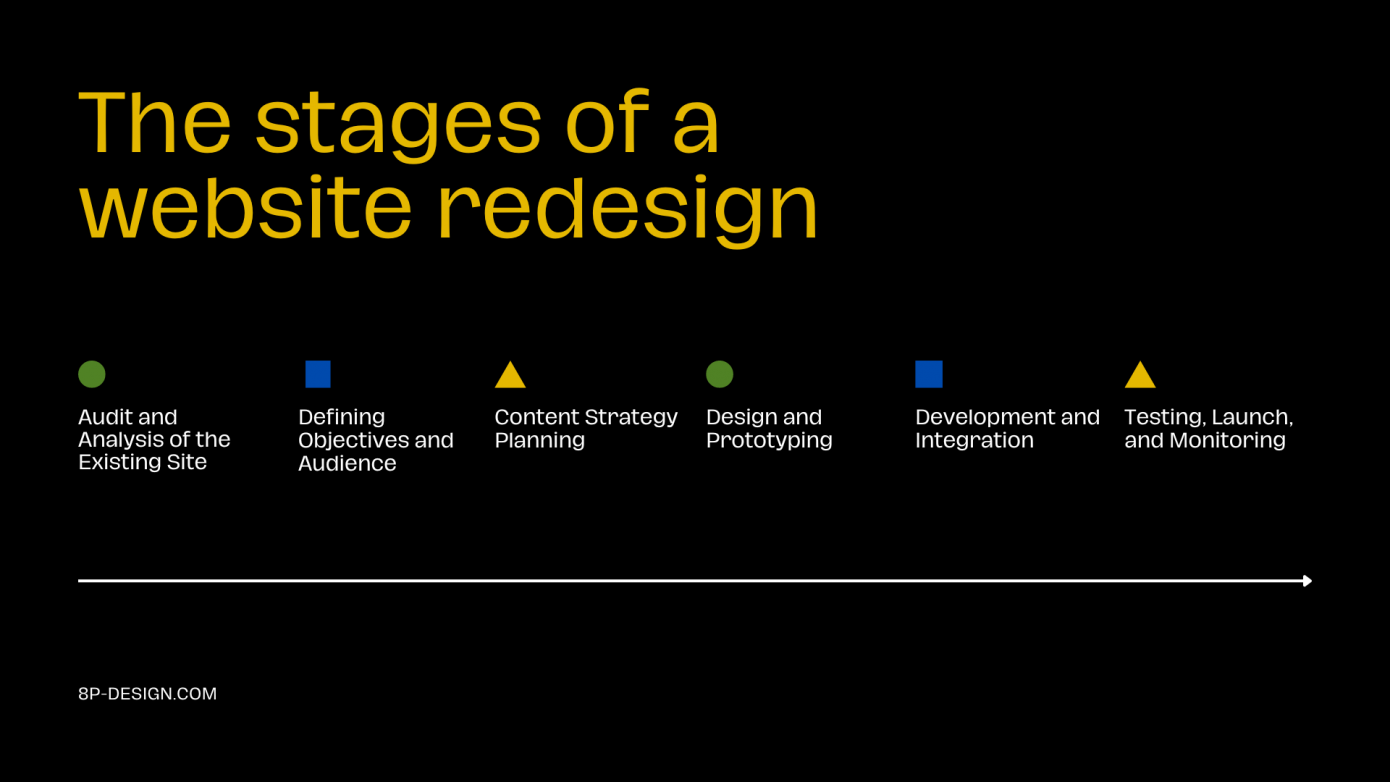Why is a Website Redesign Important?
Your website is the storefront of your business on the internet. If your site starts to look outdated or no longer generates as many visitors or sales, it might be time to consider a website redesign.
But how do you know if a full revamp is really necessary? In this article, we’ll guide you through the signs that indicate it's time for a redesign and how a refreshed website can breathe new life into your business.

Before vs. After a Website Redesign - STC Food - Global Leader in Food Import/Export by 8P Design.
What Are the Signs That a Redesign is Needed?
Outdated Design
Is your website design from the 2010s or even earlier? A site with cluttered visuals, outdated colors, or hard-to-read typography creates a poor first impression. Users tend to judge a company’s credibility based on the appearance of its website.
Difficult Navigation
If visitors can’t easily find what they’re looking for, they’ll likely leave and not come back. Confusing navigation, lack of a clear menu, or hard-to-locate pages are strong indicators that a redesign is needed to improve the user experience.
Not Mobile-Optimized
Today, more than half of users browse the internet via their mobile phones. If your site isn’t responsive, you risk losing a significant portion of your audience. Testing your site on a smartphone is often a good way to check if it needs an update.
Slow Performance
A slow website is one of the biggest barriers to user retention. Visitors expect a site to load in less than 3 seconds. If that’s not the case, it might be time to rethink the technical infrastructure and design.
Incompatibilities
Your site might have hidden interface issues that prevent interactions with your audience. For example, if certain features are no longer compatible with the latest browser versions like Chrome, Safari, or Firefox, the user experience can be negatively affected, driving visitors away.
Low Conversion Rates
If your site is getting a lot of traffic but few conversions (sales, contact forms, sign-ups), it’s often a sign that the design or content isn’t meeting users' expectations. A redesign can help you optimize the user experience and encourage action.
What Are the Benefits of a Website Redesign?
Improved User Experience (UX)
A site redesign allows you to rethink the interface to make navigation more intuitive and seamless. A user-friendly site reduces bounce rates and keeps visitors engaged longer.
SEO Optimization
An outdated site often ranks poorly on Google. During the redesign, you can ensure that every page is optimized for SEO: proper tags, relevant content, improved speed, etc.
Adaptation to New Technologies
With the rapid pace of technological advancements, it’s crucial for your site to be compatible with the latest innovations: updated security protocols (HTTPS), chatbot integration, and more.
Better Conversion Rates
With user-centered design, new well-placed CTAs (Call-to-Actions), and improved product/service presentation, you can turn more visitors into customers.
How Long Does a Website Redesign Take?
The time required for a redesign depends on the size of your site and the complexity of the changes. On average, it can take between 1 to 6 months. The redesign process includes several stages: web audit, planning, graphic design, development, testing, and launch.

A timeline showing the stages of a website redesign.
Conclusion: Should You Redesign Your Website?
If you recognize some of the issues discussed, it’s probably time to think about a redesign. A modern, well-designed website is much more than a virtual business card: it’s the heart of your digital marketing strategy and the first impression you leave with your visitors.

